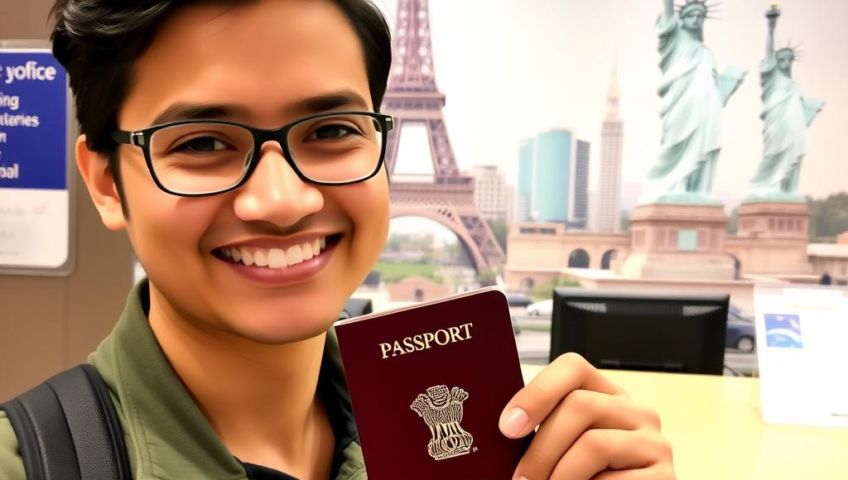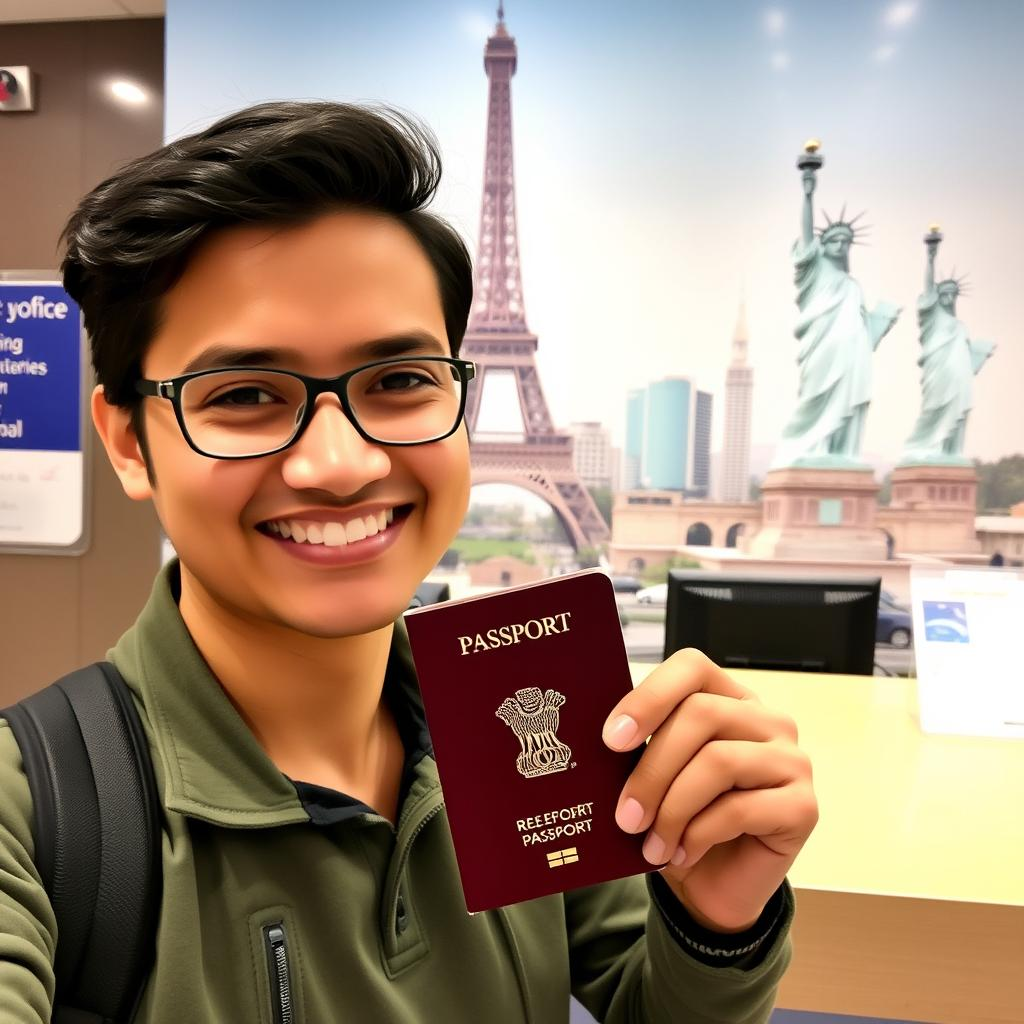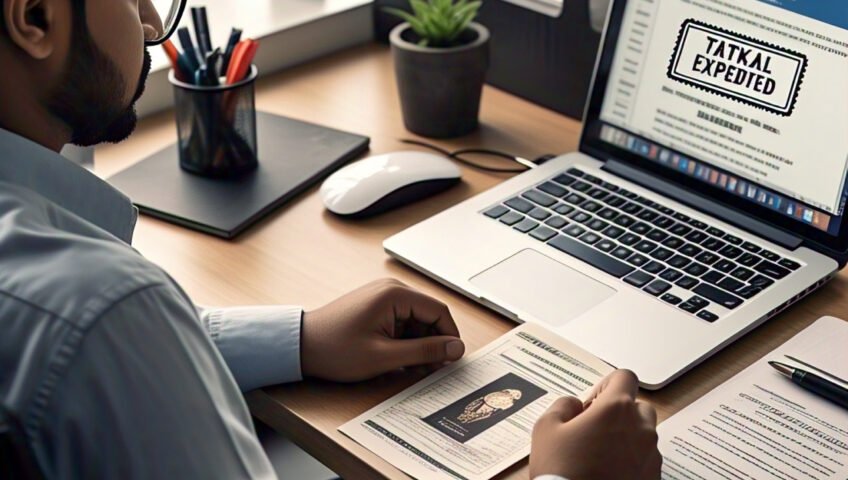
Navigating ECNR Passport Without a 10th Pass Certificate: A Comprehensive Guide
Not having a 10th pass certificate might seem like a significant hurdle when applying for essential documents like a passport. However, when it comes to obtaining an Emigration Check Not Required (ECNR) passport, there are alternative pathways you can explore. This comprehensive guide will walk you through the steps to secure an ECNR passport without a 10th pass certificate, ensuring your international travel plans proceed without a hitch.

Table of Contents
Understanding ECNR and ECR Passports
Before diving into the application process, it’s crucial to understand the difference between ECNR and Emigration Check Required (ECR) passports.
- ECNR Passport: Holders of ECNR passports can travel to any country without needing emigration clearance from the Protector of Emigrants (POE). This status is typically granted to individuals with higher educational qualifications or those who meet specific criteria.
- ECR Passport: If you don’t qualify for ECNR status, your passport will be marked as ECR. This means you must obtain emigration clearance from the POE when traveling to certain countries, primarily for employment purposes.
Why an ECNR Passport Matters
An ECNR passport simplifies international travel, especially for employment. It eliminates the need for additional emigration checks, saving you time and reducing bureaucratic hurdles. This is particularly beneficial if you’re seeking job opportunities in countries that require stringent emigration procedures.
Eligibility Criteria for ECNR Without a 10th Pass Certificate
While a 10th pass certificate is a common criterion for ECNR status, there are other avenues to qualify:
Higher Educational Qualifications
- Diplomas or Certificates: If you’ve completed any diploma or certification courses from recognized institutions, you can use these as proof.
- Professional Degrees: Holding a professional degree in fields like engineering, medicine, or law qualifies you for ECNR status.
Income Tax Payers
- Income Proof: Regular taxpayers can submit their Income Tax Return (ITR) documents or a PAN card as proof.
- Salary Slips: Providing recent salary slips can also support your application.
Children Under 18 and Seniors Above 50
- Age-Based Exemption: Applicants under 18 or over 50 years old are typically granted ECNR status by default.
- Birth Certificate: Provide a birth certificate or any official document verifying your age.
Government and Public Sector Employees
- Employment Proof: Presenting an ID card or employment certificate from a government or public sector organization suffices.
- Service Record: A copy of your service record can further strengthen your application.
Spouses and Dependents
- Family Members: Spouses and dependents of individuals who already have ECNR status can apply under the same category.
- Marriage or Birth Certificates: Provide relevant certificates to establish the relationship.
Step-by-Step Guide to Applying for an ECNR Passport Without a 10th Pass Certificate
Prepare Necessary Documents
- Proof of Education or Profession: Diplomas, certificates, or professional licenses.
- Income Proof: Latest ITR documents, Form 16, or salary slips.
- Age Proof: Birth certificate, PAN card, or Aadhaar card.
- Employment Proof: ID cards or certificates for government employees.
- Relationship Proof: For dependents, provide marriage or birth certificates.
Fill Out the Online Application
- Visit the Passport Seva official website.
- Register for a new account or log in if you already have one.
- Complete the application form, ensuring all details are accurate.
Choose the Right Passport Type
- Select ‘Fresh Passport’ if applying for the first time or ‘Reissue’ if renewing.
- Ensure you indicate your eligibility for ECNR status in the application.
Schedule an Appointment
- Book an appointment at your nearest Passport Seva Kendra (PSK) or Regional Passport Office (RPO).
- Choose a convenient date and time.
Pay the Application Fee
- Fees can be paid online during the application process.
- Keep the payment receipt for reference.
Attend the Appointment
- Document Verification: Bring original documents and photocopies.
- Biometric Data: Photographs and fingerprints will be taken.
- Interview: Be prepared to answer any queries from the official.
Police Verification
- A police officer will verify your address and background.
- Ensure you are available at your residence during this period.
Track Your Application
- Use the application reference number on the Passport Seva website to monitor progress.
Receive Your ECNR Passport
- Once approved, your passport will be dispatched to your registered address.
Alternative Documentation Tips
- Notarized Affidavit
- If certain documents are unavailable, a sworn affidavit explaining your situation may be accepted.
- Community or Professional References
- Letters from recognized community leaders or professional bodies can support your application.
Other Recommendations
While preparing for your international journey, consider these services to enhance your travel experience:
- Flight Bookings: Find the best deals on Skyscanner for your international flights.
- Accommodation: Enjoy exclusive discounts on hotels with Booking.com.
- Travel Insurance: Protect your trip with comprehensive coverage from World Nomads.
- Car Rentals: Explore your destination with ease by booking through Rentalcars.com.
Frequently Asked Questions
Q1: Can I get an ECNR passport without any educational certificates?
A: Yes, if you are an income tax payer, a government employee, or fall within certain age brackets, you can qualify without educational certificates.
Q2: Is the application process different for ECNR passports?
A: The application process is the same; you need to provide additional documents to support your ECNR eligibility.
Q3: How long is the ECNR passport valid
A: Typically, passports are valid for 10 years for adults and 5 years for minors under 18.
Q4: Can I upgrade my ECR passport to ECNR later?
A: Yes, you can apply for a reissue of your passport with ECNR status once you meet the eligibility criteria.
Q5: Do I need to carry any additional documents while traveling with an ECNR passport?
A: It’s advisable to carry documents related to your employment or purpose of travel, but no additional emigration documents are required for ECNR passport holders.
Related Topics You Might Find Helpful
- Difference Between ECR and ECNR Passports
- Steps to Renew Your Indian Passport
- Understanding Indian Emigration Laws
Conclusion
Securing an ECNR passport without a 10th pass certificate is entirely possible by utilizing alternative eligibility criteria. Whether through professional qualifications, income tax records, or age-based exemptions, you have options to facilitate your international travel plans. By following the steps outlined in this guide, you can navigate the application process with confidence and ease.
Disclaimer and Affiliate Disclosure
This article is for informational purposes only and reflects the regulations as of the time of writing. Please refer to the Passport Seva official website or consult with the authorities for the most current information. Some links in this article are affiliate links. We may earn a commission at no additional cost to you if you make a purchase through these links.

